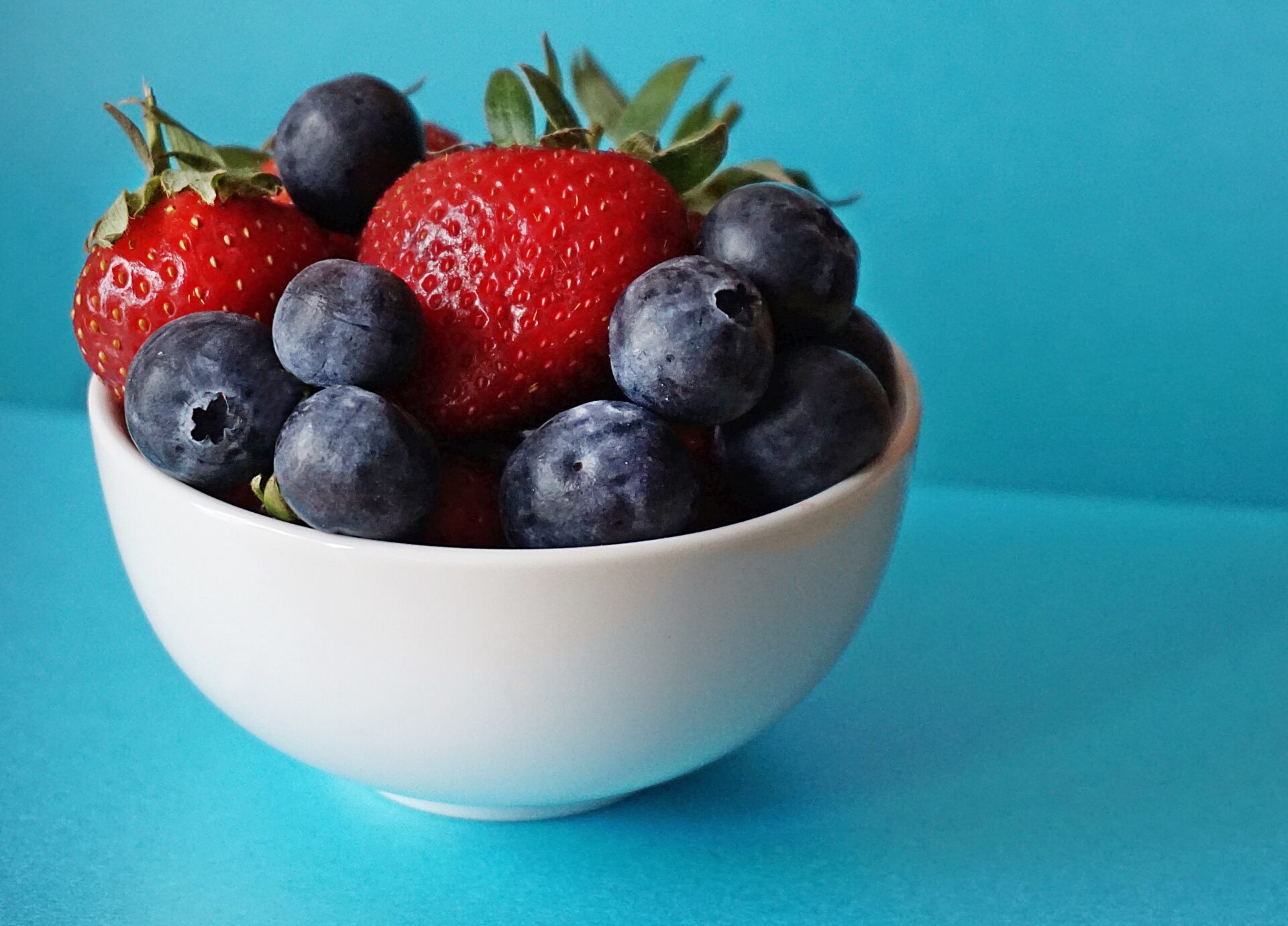Fermented foods have been a staple in traditional diets for centuries and are now gaining popularity in modern times. Fermentation is a natural process that uses beneficial bacteria to break down the sugars and starches in foods, creating a tangy and flavorful taste. Fermented vegetables and fruits are not only delicious but also offer numerous health benefits. They are rich in probiotics, vitamins, and minerals, making them an excellent addition to a healthy diet. In this article, we will explore the benefits of eating fermented vegetables and fruits and how they can improve your overall health and wellbeing.
What are fermented vegetables and fruits?
Fermented vegetables and fruits are plant-based foods that have undergone a natural process of fermentation. During fermentation, beneficial bacteria and yeasts break down the sugars and starches in the food, creating lactic acid, which acts as a natural preservative. This process not only extends the shelf life of the food but also enhances its flavor and nutritional value.
Fermented vegetables and fruits can come in many forms, such as pickles, sauerkraut, kimchi, kefir, and kombucha. These foods are rich in probiotics, enzymes, vitamins, and minerals that can support various aspects of health, including digestion, immunity, and mental well-being.
Fermentation has been used for centuries as a way to preserve food and enhance its taste and nutritional value. Today, it is gaining popularity as a health-promoting dietary practice that can help us maintain a healthy gut microbiome and support overall wellness.
The history of fermentation and its cultural significance
Fermentation is a natural process that has been used by humans for thousands of years to preserve food and enhance its flavor and nutritional value. Historically, fermentation was a way to extend the shelf life of perishable foods, such as vegetables and fruits, and make them available for consumption year-round. It was also a way to make food more digestible and improve its nutritional content.
The practice of fermentation has cultural significance in many parts of the world. For example, in Korea, kimchi is a staple dish made with fermented cabbage, radish, and other vegetables that is served with almost every meal. In Japan, miso is a traditional fermented soybean paste that is used in soups and sauces. In Germany, sauerkraut is a popular fermented cabbage dish that is often served with sausages.
Fermentation has also played a role in the development of alcoholic beverages, such as beer, wine, and mead, which have been consumed for thousands of years. In fact, some historians believe that the discovery of alcoholic fermentation may have been the catalyst for the development of agriculture, as people began to cultivate crops specifically for the purpose of making beer and other fermented drinks.
Today, fermentation continues to be an important part of many cultural traditions and cuisines. It is also gaining recognition as a health-promoting practice that can support overall wellness.
The health benefits of fermented vegetables and fruits
Fermented vegetables and fruits are packed with nutrients and beneficial microorganisms that can support various aspects of health. Here are some potential health benefits of consuming fermented vegetables and fruits:
1. Improved digestion
The probiotics found in fermented vegetables and fruits can help support a healthy gut microbiome, which is essential for proper digestion. These good bacteria can help break down food and absorb nutrients, and may also alleviate symptoms of digestive disorders, such as bloating, gas, and constipation.
2. Enhanced immune function
The beneficial bacteria in fermented vegetables and fruits can also help boost the immune system by stimulating the production of antibodies and other immune cells. This can help protect against infections and diseases.
3. Increased nutrient absorption
Fermentation can enhance the nutritional content of vegetables and fruits by breaking down complex carbohydrates and proteins into more easily digestible forms. This can increase the bioavailability of nutrients, such as vitamins, minerals, and antioxidants.
4. Reduced inflammation
Some studies suggest that the probiotics and other bioactive compounds found in fermented vegetables and fruits may help reduce inflammation in the body. Chronic inflammation has been linked to a range of health problems, including heart disease, diabetes, and cancer.
5. Improved mental health
Emerging research suggests that the gut-brain axis plays a crucial role in mental health. The probiotics found in fermented vegetables and fruits may help improve mood and alleviate symptoms of anxiety and depression.
Overall, incorporating fermented vegetables and fruits into your diet can be a simple and delicious way to support your health and well-being.
How fermentation enhances the nutritional value of vegetables and fruits
Fermentation can significantly enhance the nutritional value of vegetables and fruits by increasing their bioavailability and digestibility. Here are some ways in which fermentation can improve the nutritional content of plant-based foods:
1. Increased vitamin content
Fermentation can increase the levels of certain vitamins in vegetables and fruits, such as vitamin C and B vitamins. For example, sauerkraut is a good source of vitamin C, which is important for immune function and skin health.
2. Improved mineral absorption
Fermentation can enhance the bioavailability of minerals, such as iron, zinc, and calcium, by breaking down phytic acid, which can inhibit mineral absorption. This can be particularly beneficial for people with iron deficiency anemia or other mineral deficiencies.
3. Enhanced antioxidant activity
Fermentation can increase the antioxidant activity of vegetables and fruits by producing new compounds, such as phenolic acids and flavonoids, that have potent antioxidant properties. Antioxidants help protect against cellular damage and may reduce the risk of chronic diseases.
4. Increased protein content
Fermentation can increase the protein content of vegetables and fruits by breaking down complex proteins into simpler, more easily digestible forms. This can be particularly beneficial for vegetarians and vegans, who may have difficulty meeting their protein needs through plant-based sources alone.
5. Reduced anti-nutrient content
Fermentation can reduce the levels of anti-nutrients, such as lectins and tannins, in vegetables and fruits. These compounds can interfere with nutrient absorption and cause digestive issues in some people.
Overall, fermentation can significantly enhance the nutritional value of vegetables and fruits, making them more nutritious and easier to digest. Incorporating fermented foods into your diet can be a simple and delicious way to boost your nutrient intake and support overall health.
The role of fermented foods in gut health and digestion
Fermented vegetables and fruits can play an important role in supporting gut health and digestion. Here are some ways in which fermented foods can benefit the gut:
1. Promoting a healthy gut microbiome
Fermented foods are a rich source of probiotics, which are beneficial bacteria that reside in the gut. These probiotics can help maintain a healthy balance of gut bacteria, which is essential for proper digestion and overall health. Studies have also shown that probiotics can alleviate symptoms of digestive disorders, such as irritable bowel syndrome (IBS) and inflammatory bowel disease (IBD).
2. Improving digestion and nutrient absorption
The enzymes produced during fermentation can help break down complex carbohydrates and proteins in vegetables and fruits, making them easier to digest. This can improve nutrient absorption and alleviate symptoms of digestive discomfort, such as bloating and gas.
3. Alleviating symptoms of lactose intolerance
Fermented dairy products, such as kefir and yogurt, contain lactase, an enzyme that helps digest lactose. This can be beneficial for people with lactose intolerance, who may have difficulty digesting dairy products.
4. Supporting the gut-brain axis
Emerging research suggests that the gut-brain axis plays a crucial role in mental health. The probiotics found in fermented foods may help improve mood and alleviate symptoms of anxiety and depression.
5. Boosting the immune system
The gut is home to a significant portion of the immune system. The probiotics found in fermented foods can help stimulate the production of antibodies and other immune cells, which can help protect against infections and diseases.
Overall, incorporating fermented vegetables and fruits into your diet can be a simple and effective way to support gut health and digestion. It is important to note that not all fermented foods are created equal, and some may be more beneficial than others. It is also important to consult with a healthcare professional if you have any underlying health conditions or concerns about consuming fermented foods.
The impact of fermented foods on the immune system
Fermented vegetables and fruits can have a significant impact on the immune system by promoting the growth of beneficial bacteria and stimulating the production of immune cells. Here are some ways in which fermented foods can benefit the immune system:
1. Stimulating the production of immune cells
The probiotics found in fermented foods can help stimulate the production of immune cells, such as antibodies and T-cells, which are important for fighting off infections and diseases. Studies have shown that consuming probiotics can help reduce the risk of respiratory infections, such as the common cold and flu.
2. Reducing inflammation
Chronic inflammation has been linked to a range of health problems, including autoimmune diseases, cancer, and heart disease. Some studies suggest that the probiotics and other bioactive compounds found in fermented foods may help reduce inflammation in the body.
3. Protecting against pathogens
The beneficial bacteria found in fermented foods can help protect against harmful pathogens, such as Salmonella and E. coli. These bacteria can compete with harmful bacteria for nutrients and space in the gut, preventing them from colonizing and causing infections.
4. Enhancing vaccine efficacy
Some studies suggest that consuming probiotics can enhance the efficacy of vaccines by boosting the production of antibodies. This can be particularly beneficial for individuals with weakened immune systems, such as the elderly or those with chronic illnesses.
5. Alleviating allergies and asthma
Emerging research suggests that the gut microbiome plays a role in the development and management of allergies and asthma. Some studies have shown that consuming probiotics during pregnancy and early childhood may reduce the risk of allergies and asthma in children.
Overall, incorporating fermented vegetables and fruits into your diet can be a simple and effective way to support the immune system and promote overall health. It is important to note that not all fermented foods are created equal, and some may be more beneficial than others. It is also important to consult with a healthcare professional if you have any underlying health conditions or concerns about consuming fermented foods.
How to Incorporate Fermented Vegetables and Fruits into Your Diet
Fermented vegetables and fruits are not only tasty but also highly nutritious. If you’re interested in incorporating them into your diet, there are several ways to do so. Here are some tips to get you started:
1. Start Small
If you’re new to fermented foods, it’s best to start with small amounts and gradually increase your intake. This will give your body time to adjust to the new types of bacteria and enzymes that come with fermented foods.
2. Try Different Types of Fermented Foods
There are many types of fermented vegetables and fruits to choose from, so don’t be afraid to try different varieties. You might find that you prefer the taste of sauerkraut over kimchi, or that you enjoy kombucha more than kefir. Experiment with different flavors and textures to find what works best for you.
3. Use Fermented Vegetables and Fruits as Condiments
One easy way to incorporate fermented foods into your diet is to use them as condiments. Add a spoonful of sauerkraut or kimchi to your sandwich or wrap, or top your salad with some pickled vegetables. You can also use fermented fruits as a topping for yogurt or oatmeal.
4. Drink Fermented Beverages
Fermented beverages like kombucha, kefir, and kvass are a great way to get your daily dose of probiotics. You can drink them on their own or use them as a base for smoothies and other drinks.
5. Make Your Own Fermented Foods
If you’re feeling adventurous, you can try making your own fermented vegetables and fruits at home. This way, you can control the ingredients and fermentation process to ensure that you’re getting the most out of your food.
6. Consult with a Healthcare Professional
If you have any health concerns or are pregnant or breastfeeding, it’s always best to consult with a healthcare professional before incorporating fermented foods into your diet.
Incorporating fermented vegetables and fruits into your diet can be a fun and delicious way to improve your gut health and overall well-being. With these tips, you can start reaping the benefits of fermented foods in no time.
The Different Types of Fermented Vegetables and Fruits and Their Unique Benefits
Fermented vegetables and fruits come in many different varieties, each with its own unique set of health benefits. Here are some of the most popular types of fermented foods and what makes them special:
Sauerkraut
Sauerkraut is made from fermented cabbage, and it’s an excellent source of probiotics, vitamins, and minerals. It’s also rich in fiber, which can help support digestive health and regularity.
Kimchi
Kimchi is a Korean dish made from fermented vegetables, typically cabbage and radishes, along with a variety of spices. It’s high in fiber, vitamin C, and vitamin K, and it’s been shown to have anti-inflammatory and antioxidant properties.
Kombucha
Kombucha is a fermented tea that’s become increasingly popular in recent years. It’s made by adding a SCOBY (symbiotic culture of bacteria and yeast) to sweetened tea, which ferments over time. Kombucha is a good source of probiotics, antioxidants, and organic acids.
Kefir
Kefir is a fermented milk drink that’s similar to yogurt. It’s made by adding kefir grains to milk, which ferment the lactose and produce probiotic bacteria. Kefir is high in calcium, protein, and vitamin D, and it’s been shown to have anti-inflammatory and immune-boosting properties.
Kvass
Kvass is a traditional Russian drink made from fermented bread. It’s a good source of probiotics, B vitamins, and antioxidants, and it’s been shown to have anti-inflammatory and liver-protective effects.
Pickles
Pickles are cucumbers that have been pickled in a brine of vinegar, water, and spices. They’re a good source of probiotics, vitamin K, and potassium, and they may help support healthy digestion and immune function.
Miso
Miso is a traditional Japanese seasoning made from fermented soybeans. It’s a good source of probiotics, protein, and vitamins and minerals, and it’s been shown to have anti-inflammatory and cholesterol-lowering effects.
Each type of fermented vegetable and fruit has its own unique set of health benefits, so it’s worth trying a variety of different foods to see what works best for you. Incorporating a range of fermented foods into your diet can help support gut health, boost your immune system, and improve your overall well-being.
The Potential Risks and Precautions of Consuming Fermented Foods
While fermented vegetables and fruits offer many health benefits, there are some potential risks and precautions to keep in mind. Here are some things to consider:
Allergic Reactions
If you have a known allergy to a specific type of fermented food, such as soy or dairy, you should avoid it. Some people may also be allergic to the bacteria or yeast used in the fermentation process.
Food Poisoning
While rare, it’s possible for fermented foods to become contaminated with harmful bacteria, such as E. coli or salmonella. To reduce the risk of food poisoning, it’s important to follow proper food safety guidelines, such as washing your hands and utensils thoroughly and storing fermented foods at the correct temperature.
High Sodium Content
Some fermented foods, such as pickles and sauerkraut, can be high in sodium. If you’re watching your sodium intake, it’s important to monitor your consumption of these foods and choose lower-sodium options when possible.
Interaction with Medications
Fermented foods contain active bacteria and enzymes, which can interact with certain medications, such as antibiotics and blood thinners. If you’re taking any medications, it’s important to talk to your healthcare provider before adding fermented foods to your diet.
Pregnancy and Breastfeeding
While fermented foods can be a healthy addition to most diets, pregnant and breastfeeding women should exercise caution. Some types of fermented foods, such as unpasteurized dairy products and certain types of fish, can pose a risk of foodborne illness. It’s best to consult with a healthcare provider before consuming fermented foods during pregnancy or while breastfeeding.
Overall, fermented vegetables and fruits are generally safe and healthy for most people. By following proper food safety guidelines and monitoring your intake, you can enjoy the many benefits of these nutritious foods.





Leave a reply